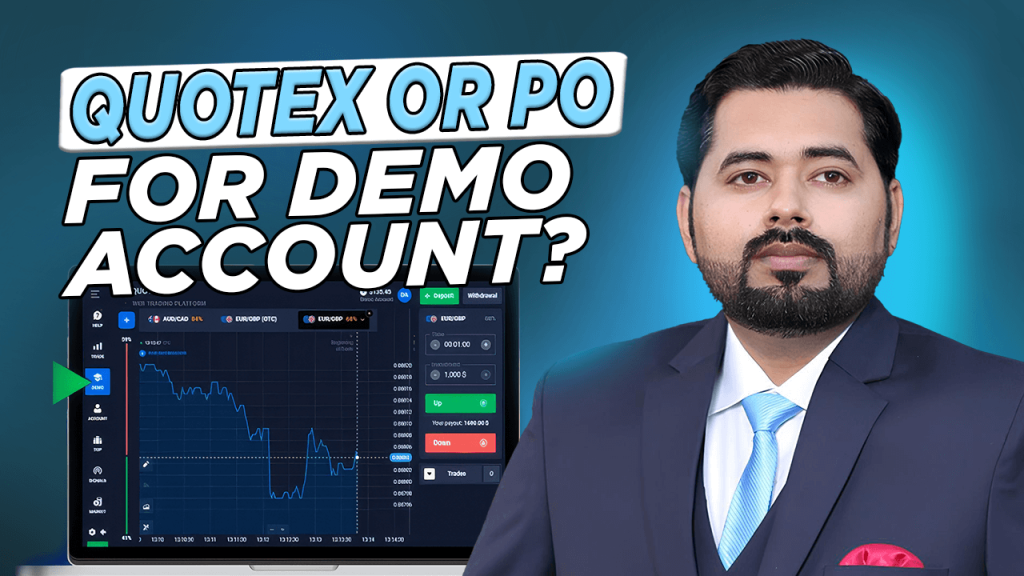
IQ Option vs Pocket Option: Which Is Better for Beginners?
When I first started trading, choosing a platform felt harder than analysing candlestick charts. Everyone in trading groups kept comparing IQ Option vs Pocket Option, each side confident their choice was superior. Some praised IQ Option for its polished interface, while others swore Pocket Option offered better payouts and faster crypto withdrawals.
I didn’t want to rely on hearsay. To find out for myself, I decided to open accounts with both brokers, deposit the same amount, and trade them side by side for one month. That way, I could see which one truly felt more beginner-friendly in practice. If you’re also considering your first step, you can create an IQ Option account here and follow along with my journey.
Before deciding between IQ Option and Pocket Option, it’s worth checking whether IQ Option is actually legit.
Setting Up My Trading Accounts
To keep the comparison fair, I deposited $300 into IQ Option using Skrill and $300 into Pocket Option using USDT. I chose these funding methods based on what was most convenient in my region.

On IQ Option, the setup was straightforward. The dashboard loaded quickly, the charts felt clean, and it reminded me of when I first tested the IQ Option 1-minute strategy, everything was structured and beginner-friendly. I selected EUR/USD and gold as my main assets, set up candlestick charts on the five-minute timeframe, and added RSI along with a moving average.

Pocket Option gave me a different first impression. The interface was packed with features, like social trading, tournaments, payout percentages flashing at the top. I chose to keep things simple by setting up the same five-minute candlestick charts on EUR/USD. For indicators, I used RSI and MACD. My expectation was that Pocket Option might offer higher payouts, but I wasn’t sure how smooth execution would be.
If you start with IQ Option, check these beginner-friendly 1-minute strategies.
First Week of Live Trading Results
I started cautiously, risking between $5 and $10 per trade. On IQ Option, my first 12 trades went fairly well. I had seven winners and five losers, finishing the week with a profit of $46. The clean layout really helped me focus on reading candlestick setups, something I had already studied in depth in my guide on IQ Option candlestick patterns.
Pocket Option, during the same week, saw me take 14 trades. Eight won and six lost, giving me a net gain of $38. The payouts were slightly higher on average compared to IQ Option, but I noticed that I was tempted to trade more often because the interface kept showing me attractive setups from social traders.
Shifts in Performance During the Second Week
The following week was a reminder that trading is never a straight line. On IQ Option, I placed 10 trades and ended up with only four winners. My account dipped by -$32, wiping out part of the first week’s profit. I realised I had over-relied on RSI signals without confirming them against broader candlestick structures.
Pocket Option performed a bit better that week. Out of 11 trades, six were winners, and I closed the week with a modest gain of +$15. Still, I noticed execution lagged slightly during a big news release, with one order filling at a less favourable price.
End of Month Results: Side-by-Side Comparison
By the end of four weeks, I had enough data to compare both platforms. Here’s how they looked in my trading journal:
| Platform | Trades Taken | Win Rate | Net Result | Withdrawal Speed |
| IQ Option | 42 | 52% | +$58 | Skrill, under 24 hrs |
| Pocket Option | 48 | 54% | +$72 | USDT, around 12 hrs |
Both were profitable overall, though the journey to those results felt quite different.
What I Liked About IQ Option
The biggest advantage of IQ Option was its clean and uncluttered interface. As a beginner, I didn’t feel overwhelmed. Withdrawals through Skrill were smooth, I requested two during the month, both processed within a day.
IQ Option’s platform has more built-in tools; here’s how real traders use them.
The platform also made it easier to stay disciplined. There were no flashy pop-ups or leaderboards distracting me, just my charts and indicators. It reminded me of when I experimented with multi-chart layouts in IQ Option, where structure and organisation improved my performance.
The downside, however, was that payouts on certain assets dropped during off-peak hours. A trade that would pay 85% in the morning sometimes dropped to 70% at night, which limited my profit potential if I wanted to trade outside peak sessions.
For those planning to deposit more than a few hundred dollars, you’ll want to understand how IQ Option handles large accounts.
What I Liked About Pocket Option
Pocket Option gave me more flexibility. The range of assets was wider, payouts were often above 90%, and crypto withdrawals were lightning fast. My USDT hit my wallet in half a day, which was impressive compared to the traditional e-wallet route.
The social trading feature was also interesting. Watching how others traded gave me fresh ideas, although it also encouraged me to copy setups I didn’t fully understand, which led to mistakes.
The main challenge with Pocket Option was the busy interface. It was easy to feel pulled in too many directions, especially with tournaments and high-payout alerts popping up. For a beginner, this could easily lead to overtrading.
Balanced Insights: IQ Option vs Pocket Option
After a month of live testing, I didn’t come away with a single “winner.” Instead, both platforms revealed strengths and weaknesses.

- IQ Option felt more structured and beginner-friendly, especially for traders who prefer e-wallet payments and educational resources.
- Pocket Option felt more adventurous, better suited to those who like variety, higher payouts, and crypto transactions.
In short, it depends on what you value more, discipline and simplicity, or variety and flexibility.
Account verification can be tricky; here’s how to get verified on IQ Option safely.
Practical Tips If You’re Testing Both
From my experience, here are a few things I’d suggest:
- Start with small deposits on each platform and see which one feels more natural.
- Withdraw small amounts early to test payout reliability.
- Stick to one or two assets while comparing results, so you’re evaluating the platform and not your asset choices.
- Don’t get carried away by payout percentages alone, execution speed and discipline matter just as much.
If you want to try it yourself, you can open an IQ Option account here and put these insights into practice with your own trades.
Bottom line: What I Learned From This Experiment
Trading both brokers side by side was eye-opening. IQ Option kept me grounded with its simplicity, while Pocket Option kept me curious with its broader features. Both made me profit in the end, but the way I got there taught me more about my own trading psychology than anything else.
That’s why I’ve decided to keep both accounts active. Some days I’ll log into IQ Option for a focused candlestick session; other times I’ll use Pocket Option when I want exposure to more assets and higher payouts.
If you’re just starting out, don’t get stuck on the debate of IQ Option vs Pocket Option. Try both, test withdrawals, and see how they align with your style. For me, the experiment wasn’t about finding the perfect broker, it was about finding the right fit for my trading journey.
And if you’re ready to start your own test, create your IQ Option account today and begin exploring in real trades, just like I did.





